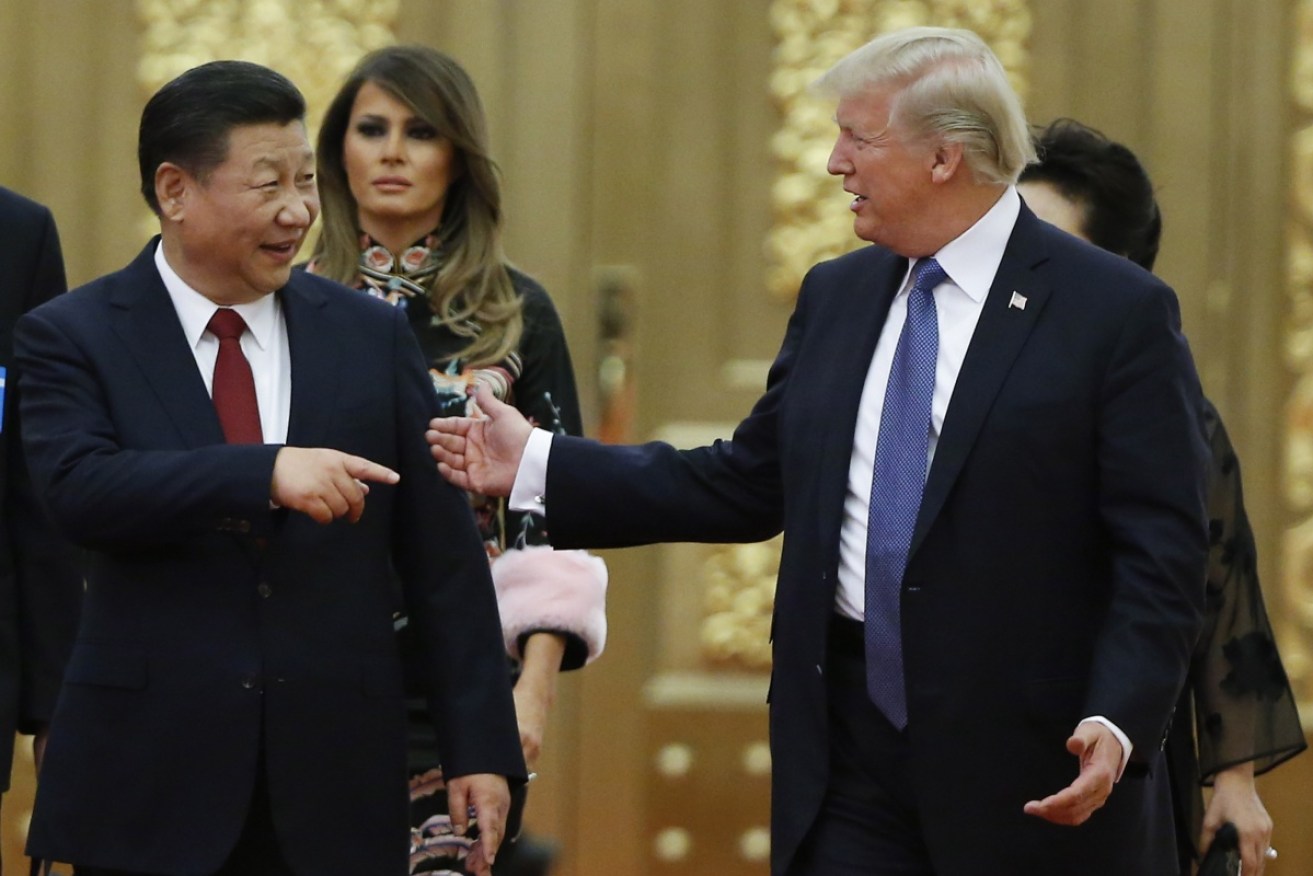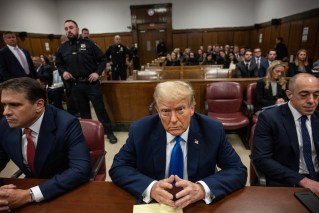US slaps tariffs on $US200b China imports

Donald Trump has placed relations with China's President Xi Jinping under extreme pressure. Photo: Getty
US President Donald Trump says he will impose 10 per cent US tariffs on about $US200 billion worth ($A279 billion) of Chinese imports, but has spared smart watches from Apple and Fitbit and other consumer products such as bicycle helmets and baby car seats.
Trump, in a statement announcing the new round of tariffs, warned that if China takes retaliatory action against US farmers or industries, “we will immediately pursue phase three, which is tariffs on approximately $US267 billion of additional imports”.
The iPhone was not among the ‘wide range’ of products that Apple told regulators would be hit by the $US200 billion round of tariffs in a September 5 comment letter to trade officials.
But if the Trump adminstration enacts a further $US267 billion round of tariffs, the iPhone, along with all other smart phones, are likely to be included in the list.”
Labor frontbencher Brendan O’Connor believes Australia will be impacted by US President Donald Trump’s decision to slap tariffs on $200 billion worth of Chinese goods.
Mr O’Connor said there was “never a dull moment” with President Trump as the global heavyweights trade blows.
“There will be ramifications – the extent and nature of which we don’t know yet – but there’ll be some impact on Australia,” Mr O’Connor told Sky News on Tuesday.
“The retaliation is going to ripple through this region, without a shadow of a doubt.”
Trade Minister Simon Birmingham said Australia was always concerned when people flouted the traditional rules-based order of international trade.
“We’ve continued consistently to urge parties not to pursue distorting subsidies and not to pursue unilateral tariff actions,” he told ABC radio.
Senator Birmingham said the government was focused on securing farmers preferential treatment to global markets and guarding against other nations dumping low-value goods on Australian soil.
“Tariffs ultimately result in consumers paying more and disruptive trade practices ultimately hurt economies rather than help them,” he said.
Collection of tariffs on the long-anticipated list will start September 24 but the rate will increase to 25 per cent by the end of 2018, allowing US companies some time to adjust their supply chains to alternate countries, a senior administration official said.
So far, the United States has imposed tariffs on $US50 billion worth of Chinese products to pressure China to make sweeping changes to its trade, technology transfer and high-tech industrial subsidy policies.
Tariffs have put the U.S. in a very strong bargaining position, with Billions of Dollars, and Jobs, flowing into our Country – and yet cost increases have thus far been almost unnoticeable. If countries will not make fair deals with us, they will be “Tariffed!”
— Donald J. Trump (@realDonaldTrump) September 17, 2018
The escalation of Trump’s tariffs on China comes after talks between the world’s two largest economies to resolve their trade differences have produced no results.
US Treasury Secretary Steven Mnuchin last week invited top Chinese officials to a new round of talks, but thus far nothing has been scheduled.
China has vowed to retaliate further against any new US tariffs, with state-run media arguing for an aggressive “counterattack.”
China’s yuan currency has weakened by about 6.0 per cent against the US dollar since mid-June, offsetting the 10 per cent tariff rate by a considerable margin.
The US Trade Representative’s office eliminated about 300 product categories from the proposed tariff list, along with some subsets of other categories, but administration officials said the total value of the revised list would still be “approximately $US200 billion.”
A broad, $US23 billion category of internet-connected devices will remain subject to tariffs, but some products, such as smart watches, Bluetooth devices, and other consumer-focused technology products were removed following a lengthy public vetting period during which more than 6000 comments were received.
Also spared from the tariffs were Chinese inputs for US-produced chemicals used in manufacturing, textiles and agriculture.
Consumer safety products made in China, such as bicycle helmets sold by Vista Outdoor and baby car seats and other products from Graco Inc also were taken off the list.
But the adjustments did little to appease technology and retail groups who argued that the tariffs would hit consumers hard.
“Tariffs are a tax on American families, period,” said Hun Quach,” The Retail Industry Leaders Association’s vice president for international trade.
“Consumers – not China – will bear the brunt of these tariffs and American farmers and ranchers will see the harmful effects of retaliation worsen.”
-AAP








